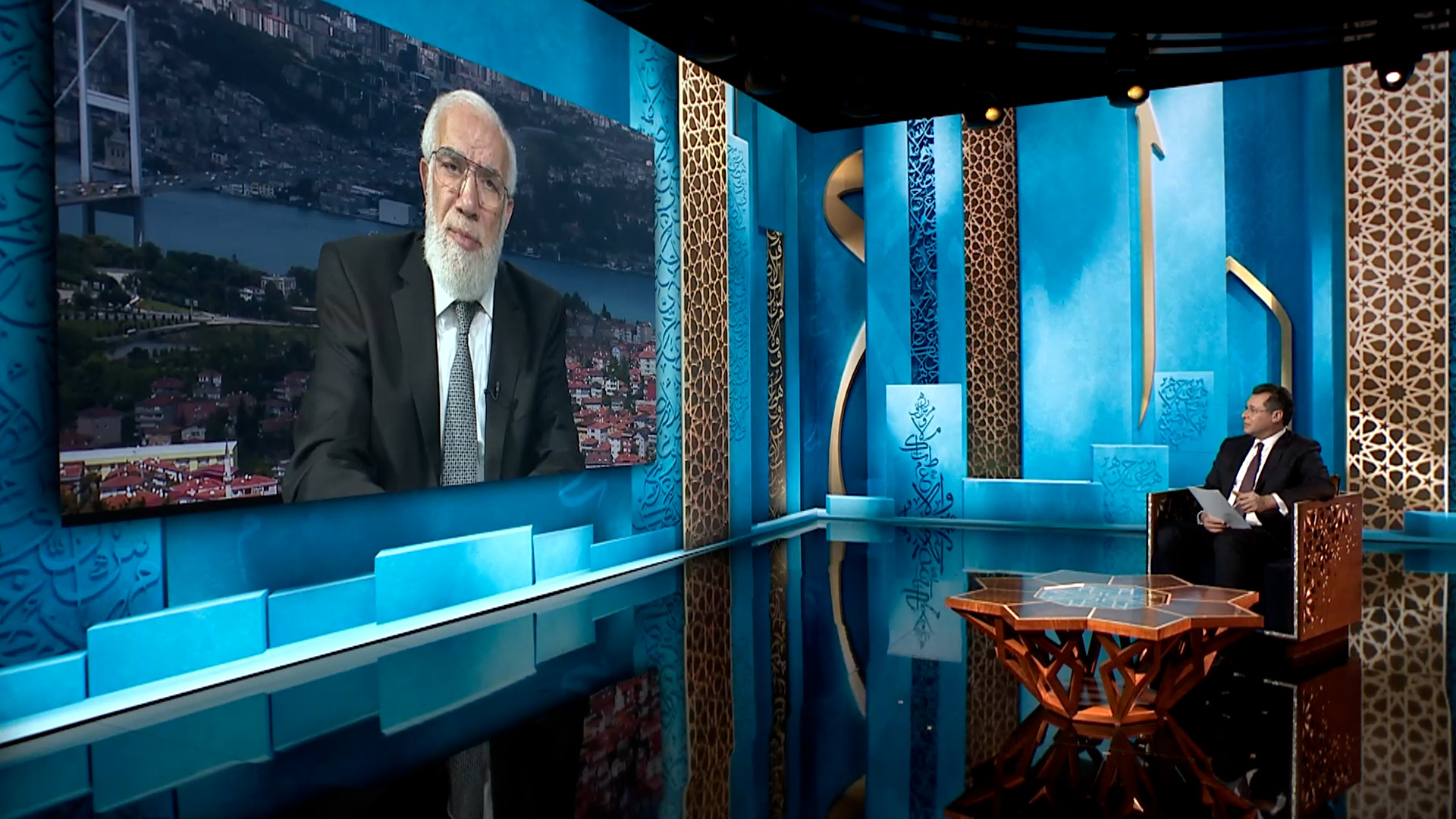play videoplay video
Video duration: 49 minutes 43 seconds 49:43
The Islamic preacher, Dr. Omar Abdel Kafi, said in his second episode of the program “Sharia and Life in Ramadan” that if Muslims do not work to remove injustice and estrangement among themselves, then God will not remove from them the oppression of the rulers, nor the oppression of the Western countries that hate them.
The second episode (3/12/2024) of the program devoted its topic to the relationship with relatives, neighbors, and other groups in society, their rights, and the connection between this and the comprehensive concept of worship in Islam.
In his talk, Dr. Abdel Kafi points out that there are deficiencies in the concept of worship among segments of Muslims, as they limit it to commanded acts of worship such as prayer, zakat, Hajj, and reading the Qur’an, without caring that the fruits of these acts of worship appear in interactions and dealings with society.
In addition to this consideration, which makes religiosity apparent and incomplete, the Islamic preacher draws attention to another flaw, which is the spread of what he called “emotional drought” among many who do not express their feelings towards others. In this context, he mentioned that the Prophet, may God bless him and grant him peace, asked one of the companions to Telling his friend that he loves him.
Community cohesion
The importance of the unity of the societal relationship is demonstrated by God Almighty granting to His prophets the status of brothers to their disbelieving people. The people of Ad, their brother Hud, Midian, their brother Shuaib, and Thamud, their brother Salih. This is a clear indication of the importance of appreciating this bond and fulfilling its rights, even if religion differs.
At the forefront of the categories that a Muslim should pay attention to in his relationship with are his relatives, according to the Qur’anic order, as they come after worshiping God, not associating others with Him, and honoring one’s parents. Separating them is an extension of honoring one’s parents. In this context, Dr. Abdel Kafi stressed the necessity of investing the days of Ramadan in breaking the barrier. Growing old and connecting severed wombs.
The Islamic preacher pointed out that the first sin a creature committed was arrogance, when Satan refused to submit to God’s command to prostrate to Adam and said, “I am better than him,” pointing out that this sin is one of the main motives for breaking with those who have rights.
Dr. Abdel Kafi believes that boycotting and resistance to relatives are legacies that reflect a major defect, not only in behavior, morals, and the general concept of worship, but also in belief and psychological makeup. Therefore, the boycotter is considered psychologically ill and may be mentally ill, as there is no way to end this eternal relationship. .
He stressed that it is not permissible for a Muslim to boycott his brother for more than 3 nights, as was reported from the Prophet Muhammad, may God bless him and grant him peace, pointing to the opinions of some scholars that if the boycott continues, the page of good deeds will be closed as it enters the fourth day.
Which neighbor has the right?
The second category that Dr. Omar Abdel Kafi spoke about was the neighbors, and in this context he pointed out that if the neighbor is a Muslim relative, he has 3 rights: the right of Islam, the right of kinship, and the right of neighbourhood, and if he is a Muslim neighbor, he has two rights, and if he is a non-Muslim, he has two rights. Neighborhood.
The character of neighborliness of the adjoining person is not limited to the dwelling, as some jurists considered anyone who lives up to the seventh house to the right and left to be a neighbour, while others increased it to 40, while others considered everyone who lives in the neighborhood or area to be a neighbor who has the right to that neighbourhood, according to what Dr. Abdel Kafi reported.
He counted the afflicted people in neighboring countries as those who are entitled to the rights of neighborliness, and this is confirmed by the intensification of the distress they face, wondering how to count among the Muslim nation those who are busy in this blessed month watching soap operas rather than caring about helping their brothers and removing injustice from them.
In this context, he stressed the need to mobilize resolve and for the nation to emerge from its wandering in limiting attention and support to the people of one nation, stressing that brotherhood among Muslims in general has rights that must be fulfilled, but he also pointed out that these rights are necessary as much as possible, for God does not burden a soul beyond what it can bear. .
Source: Al Jazeera

